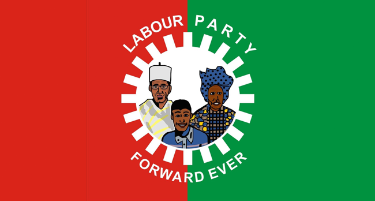In a swift response to the announcement of Julius Abure’s suspension as the National Chairman of the Labour Party (LP), the party has declared that the Edo State executives do not possess the authority to enforce such an action. This clarification came through a statement issued by the party’s spokesman, Obiora Ifoh, on Saturday.
Ifoh dismissed the suspension, which was purportedly executed by the ward executive of Ward 3, Arue, Utomi, Esan North East of Edo, labeling it as baseless and unauthorized.
“The ward, LG, or even the state have no powers under the constitution to suspend the National Chairman,” Ifoh stated emphatically. He referred to the Labour Party’s constitution, highlighting Article 17, subsection 1 (2019), which clearly stipulates that only a National Convention convened for the specific purpose of removing or suspending the National Chairman, and with a two-thirds majority vote, holds such power.
To further support this position, Ifoh cited a recent judicial precedent. On August 14, 2023, the Court of Appeal, Benin Division, under Presiding Justice Theresa Ngolika Orji-Abadua, affirmed in a case brought by Lucky Shaibu and others against Julius Abure and others, that the National Chairman of the Labour Party cannot be suspended or removed by any ward executive. This ruling corroborated the decision of the lower court, reinforcing the procedural protections surrounding the position of the National Chairman.

Meanwhile, the Labour Party’s national leadership has launched an investigation into the origins of the purported suspension letter from Edo. Ifoh, who also serves as the LP’s National Publicity Secretary, maintaining that the party’s national leadership is taking this matter seriously. He noted that any member found guilty of violating the party’s constitution and rules would face disciplinary action.
“The leadership of the party is, however, investigating the source of the purported letter of suspension and will summarily act by the party rules in disciplining any officer of the party found guilty of contravening the rules of the party,” Ifoh declared.
This unfolding situation underscores the internal tensions within the Labour Party and highlights the complexities of party governance and constitutional adherence. The swift denial of the suspension by the national leadership is a clear signal of the importance they place on maintaining procedural integrity and hierarchy within the party.
The Labour Party, which has been gaining prominence and influence in recent times, particularly with its active role in national politics, seems determined to address internal discord promptly to prevent any destabilization that could affect its public image and operational effectiveness. Julius Abure’s leadership remains intact as the party navigates this controversy, upholding the constitutional processes that govern its operations.
Observers and party members alike are watching closely to see how this issue will be resolved and what measures the national leadership will implement to prevent similar occurrences in the future. The outcome of this investigation and the subsequent actions taken by the Labour Party could have significant implications for its internal cohesion and political strategy moving forward.




